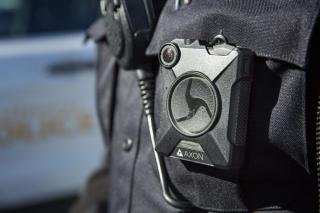Forensic Transcription-Translation Panel on Saturday, Dec 3 via ZOOM, one ATA CE point!
Marco Hanson, our previous AATIA president, is hosting a free Forensic Transcription-Translation Panel on Saturday, Dec 3 at 01:00 PM (requires registration).
This will be a conversation among several experts on forensic transcription and translation of evidentiary recordings. This training is for translators, interpreters, and other specialists who work with bodycam and dashcam recordings, interviews of victims and suspects, wiretaps and other recorded phone calls, and any audio or video files with non-English speech that must be transcribed and then translated for filing in US courts.
Marco and his guests will explore some of the special challenges and practical solutions for this growing sector. Aside from Marco, the expert panel consists of Javier Castillo, Carla Collins, Christopher Griffin, Judy O’Brien, Pilar Meyer and Dr. Rey Romero
The Webinar has been approved by the ATA for one CE point!
Questions they are planning to discuss:
1. What is your process for evaluating, quoting and deciding whether to accept an FTT assignment?
2. What are some reasons that you would decline to work on a given FTT?
3. What challenges have you had with opening and playing source files? (such as proprietary file types)
4. What’s your ideal staffing for an FTT, and why: one person? Two? A team?
5. Which nonverbals would you note in a transcription and which – if any – would you omit? (coughs, chuckles, sniffles, sighs, doors closing, traffic passing, snorts, etc.)
6. Do you ever indicate the word that was emphasized in a phrase, such as “I didn’t kill him” vs. “I didn’t kill him”?
7. What kinds of footnotes, endnotes, or other TTE (transcription-translation expert’s) comments do you feel are important?
8. How do you decide how to punctuate your transcription of a given string of spoken words, when alternate punctuations change the meaning? (such as “I didn’t find… It was there” vs. “I didn’t find it. Was there…”)
9. Do you hear semi-bilingual police officers and other government employees whose mistakes in the source language lead to misunderstandings?
10. Have you been asked by a client to do anything as a TTE that you felt was unethical?
11. Have you tried voice recognition software (like Dragon) to create a first draft of the transcription?
12. What kind of outside research has been helpful for you when working on FTTs? (reviewing other case documents, Google Maps, forums, specialized glossaries, etc.)
13. What’s it like being called to testify in trial about an FTT you worked on?
This is a free event, but registration is required!
Certificates of attendance available upon request.


Comments are closed.